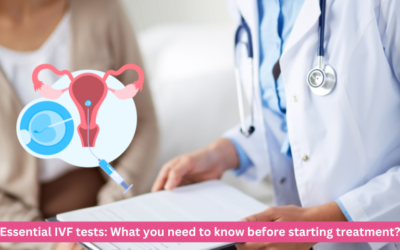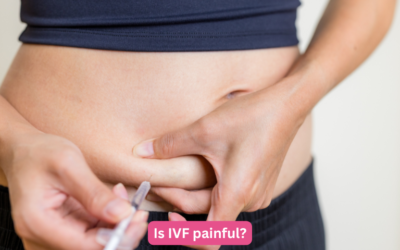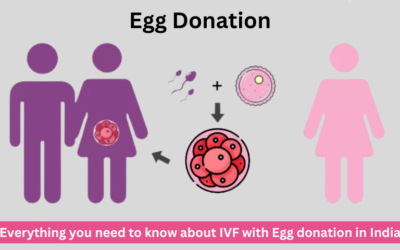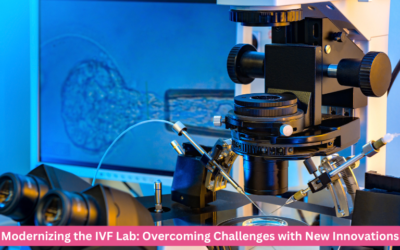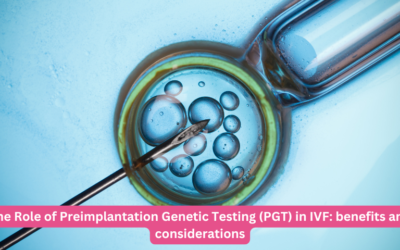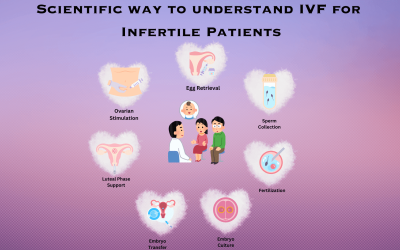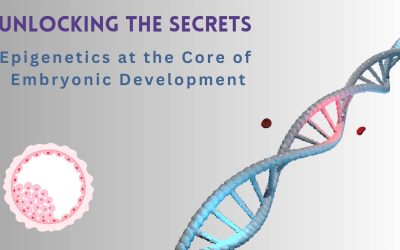TB & Infertility
Tuberculosis (TB) is a contagious bacterial infection that primarily affects the lungs, but it can also impact other organs and systems in the body, including the reproductive organs. At Shukan Hospital & IVF Centre, we recognize the importance of addressing not just the physical but also the emotional aspects of female infertility, especially when it’s connected to TB. Our experienced team offers a comprehensive approach to diagnosing and treating TB-related infertility, providing personalized care to our patients.
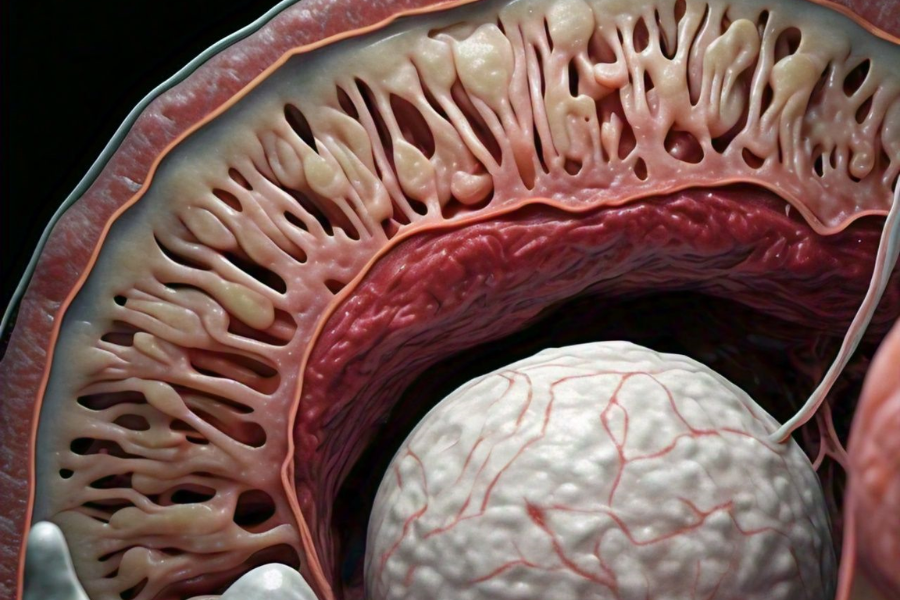
What is Tuberculosis(TB)?
TB is caused by Mycobacterium tuberculosis, a bacterium that primarily affects the lungs. It spreads through airborne droplets when an infected person coughs, sneezes, or talks. Symptoms can vary, including persistent cough, chest pain, fever, and night sweats. TB can also impact other parts of the body, leading to various complications, including infertility.
The Connection between TB & Infertility
How TB affects fertility?
TB can affect the female reproductive system in several ways, often damaging the fallopian tubes, uterus, or ovaries. The infection can cause scarring and blockages in the reproductive tract, affecting the movement of the egg and sperm and making conception more difficult. Additionally, TB can impact the hormonal balance, further contributing to infertility.
Diagnosis of TB-Related Infertility
To diagnose TB-related infertility, a thorough medical evaluation is essential. The diagnostic process may include:
- Medical history and physical examination: A detailed review of the patient’s medical history, including any symptoms of TB or infertility, and a physical examination can provide initial insights.
- Imaging tests: Imaging studies such as X-rays, CT scans, or ultrasound can help identify any structural abnormalities in the reproductive organs caused by TB-related scarring or blockages.
- Sputum test and culture: TB bacteria can be detected in the sputum, and cultures can confirm the presence of the infection.

- Endometrial biopsy: A biopsy of the endometrial tissue may be taken to analyze for evidence of TB infection.
- Blood tests: Blood tests to detect TB antibodies can also provide evidence of the infection.
- Laparoscopy and Hysteroscopy: In some cases, a minimally invasive procedure, such as laparoscopy or hysteroscopy, can be performed to directly visualize and assess the reproductive organs for scarring or blockages caused by TB.
Treatment of TB-Related Infertility

When tuberculosis (TB) is identified as a contributing factor to female infertility, treatment and management often require a multi-faceted approach. Here’s a detailed look at how TB-related infertility can be addressed:
-
Anti-Tubercular Therapy (ATT):
- Purpose: The primary goal of anti-tubercular therapy (ATT) is to eliminate the TB infection from the body and prevent its spread. It specifically targets the Mycobacterium tuberculosis bacteria responsible for causing the disease.
- Medication regimen: A typical course of ATT can last several months and may include a combination of antibiotics such as isoniazid, rifampicin, pyrazinamide, and ethambutol. The specific medication and duration will depend on the type and severity of TB infection.
- Monitoring: Regular medical check-ups and monitoring of liver function tests are essential, as some TB medications can have side effects.
-
Fertility Restoration Post-TB treatment:
- Healing and scarring: Once the TB infection is treated and under control, the healing process in the reproductive organs can commence. Scarring caused by TB-related damage to the fallopian tubes, uterus, or ovaries may be monitored and assessed.
- Reproductive health assessment: A fertility specialist may evaluate the overall reproductive health, including hormone levels, ovarian reserve, and the structural integrity of the reproductive organs. Diagnostic tests such as hysterosalpingography (HSG) or laparoscopy can help assess the condition of the reproductive tract.
-
Assisted Reproductive Technologies (ART):
- In Vitro Fertilization (IVF): In cases where natural conception is not viable, IVF can be an effective solution. This process involves retrieving eggs from the ovaries, fertilizing them with sperm in a lab, and then implantation of the fertilized embryo into the uterus.
- Other ART techniques: Additional options, such as Intracytoplasmic Sperm Injection (ICSI) and frozen embryo transfers, may be utilized to increase the likelihood of conception.
-
Lifestyle and Nutritional support:
- Balanced diet: A well-balanced diet can play a significant role in supporting overall reproductive health. Nutrients like folic acid, vitamin D, and antioxidants can enhance fertility outcomes.

- Exercise and stress management: Regular physical activity and stress-reduction techniques can contribute to hormone balance and overall well-being.
- Balanced diet: A well-balanced diet can play a significant role in supporting overall reproductive health. Nutrients like folic acid, vitamin D, and antioxidants can enhance fertility outcomes.
-
Psychological support and counseling:
- Emotional well-being: Infertility treatment can be emotionally challenging. Support groups and counseling services can provide a safe space to express feelings and receive encouragement.
- Education programs: These programs empower patients with knowledge about infertility treatments and support available, which can ease the mental and emotional burden.
-
Follow-up care:
- Long-term monitoring: Regular follow-ups with healthcare providers ensure ongoing care and monitoring of reproductive health, especially after successful treatment of TB.
- Assessment of reproductive health progress: Continued evaluation of the effectiveness of fertility treatments and adjustments to the treatment plan, if necessary.
By addressing TB-related infertility through a combination of medical treatments, advanced reproductive technologies, lifestyle adjustments, and emotional support, Shukan Hospital & IVF Centre offers a comprehensive approach to helping individuals and couples achieve their family planning goals.
Why choose Shukan Hospital & IVF Centre in Ahmedabad for Uterine TB-Related Infertility treatment?
- Our highly skilled fertility specialists and medical team have extensive experience in diagnosing and treating TB-related infertility.
- We offer a holistic approach, combining advanced medical treatment, patient education, and emotional support to empower you on your journey to fertility restoration.
- Our hospital is equipped with advanced diagnostic and treatment technologies to ensure precise and effective care.
- We tailor our treatment plans to meet the unique needs of each patient, considering their medical history and individual circumstances.
- Our compassionate team is dedicated to providing a supportive environment throughout your treatment journey, including counseling services and patient education programs.
FAqs
How long does it take to diagnose TB-related infertility?
The time for diagnosis can vary based on the individual’s symptoms and medical history. It often involves a series of tests, including imaging studies and lab tests, which may take several days to weeks.
Is TB-related infertility permanent?
The outcome of TB-related infertility depends on various factors, including the degree of organ damage and the response to treatment. Many cases can be treated, and fertility may be restored.
How effective are antituberculosis medications in treating TB-related infertility?
Antituberculosis medications can be highly effective in clearing the infection and improving fertility in cases where reproductive organs have not sustained irreversible damage.
Is it safe to conceive while undergoing TB treatment?
It is usually advised to complete TB treatment before attempting to conceive, as some medications may have potential effects on the developing fetus.
Can TB infection cause complications in pregnancy?
Yes, untreated TB can pose complications during pregnancy, such as low birth weight, preterm birth, or congenital TB in the newborn. Close medical monitoring is essential.
What should I expect during the recovery process after treatment?
Recovery from TB-related infertility treatment depends on the severity of damage. Many individuals experience improved reproductive health with appropriate treatment and lifestyle changes. Follow-up visits and monitoring are crucial.
Is there a specific diet that can support recovery from TB-related infertility?
A balanced diet rich in vitamins, minerals, and antioxidants can contribute to overall reproductive health. Nutritional support may assist in enhancing the body’s ability to recover from TB-related infertility.
Meet Our Specialists

Dr. Prakash Patel
MBBS, DGO, Diploma in Laparoscopy, Diploma in Fetal Medicine
Specialities: IVF, Male Infertility, Female Infertility
Experience: 10+ years
Language: English, Hindi, Gujarati
- Expert in advanced laparoscopic surgeries.
- Successfully manages complex IVF cases and recurrent miscarriages.
- Proficient in high-risk pregnancy and advanced IVF treatments.
- Compassionate, personalized patient care.
- Certified by top institutions in France and Croatia.
- Member of FOGSI and ISAR, recognized internationally.

Dr. Ajay Prajapati
MBBS (Bachelor of Medicine, Bachelor of Surgery), MS (Master of Surgery)
Specialities: IVF, Infertility, Fetal medicine
Experience: 10+ years
Language: English, Hindi, Gujarati
- Over a decade of hands-on experience in fertility and pregnancy challenges.
- Expert in advanced laparoscopy for minimally invasive surgeries.
- FOGSI-certified sonologist, ensuring accurate pregnancy assessments.
- Known for successful outcomes and trusted care in high-risk cases.
- Earned patient trust across Gujarat and beyond
Testimonials
Blogs related to Female Infertility
Essential IVF tests: What you need to know before starting treatment?
In-vitro fertilization (IVF) offers hope to many couples and individuals dreaming of parenthood. However, starting IVF requires a series of...
Factors affecting the IVF success rates
In vitro fertilization (IVF) has brought hope to millions of couples struggling with infertility. However, understanding the factors that influence...
What is the right age for an IVF procedure?
Navigating the journey to parenthood can be a complex and emotional experience, especially when considering assisted reproductive...
What are the stages of IVF? A step-by-step guide by Shukan Hospital & IVF Centre
In-vitro fertilization (IVF) has opened new pathways to parenthood for those facing fertility challenges. Whether you’re considering IVF or are in...
IVF and Multiple pregnancies: Understanding the risks and Benefits
In vitro fertilization (IVF) has brought hope to countless couples seeking to build families. However, one of the more complex aspects of IVF is the...
Is IVF Painful?
For many couples struggling with infertility, in vitro fertilization (IVF) represents hope. However, one common question patients often ask is, "Is...
Everything you need to know about IVF with Egg donation in India
Becoming a parent is a cherished dream, but for some, it can involve overcoming fertility challenges. IVF with egg donation is a specialized...
What is the difference between IVF & Test tube baby?
In the world of fertility treatments, you often hear terms like "IVF" and "test tube baby" used interchangeably. This can create confusion for...
IVF after miscarriage: What you need to know
Experiencing a miscarriage can be a profoundly emotional and challenging time. For many, the journey toward parenthood does not end with a...
The Climate Connection: Weather’s Impact on IVF Success Rates
In vitro fertilization (IVF) is a highly controlled medical process, but can external factors like weather influence its success? This blog explores...
The Human Touch: Emotional and Ethical Considerations in IVF
In vitro fertilization (IVF) is more than a complex medical procedure; it represents a profound journey of hope, emotions, and critical ethical...
Modernizing the IVF Lab: Overcoming Challenges with New Innovations
In vitro fertilization (IVF) has transformed reproductive medicine, offering hope to individuals and couples facing infertility. At the core of this...
The role of Preimplantation Genetic Testing (PGT) in IVF: benefits & considerations
At Shukan Hospital & IVF Centre, we are at the forefront of advanced fertility treatments, striving to provide our patients with the best...
IVF vs. IUI: Which fertility treatment is right for you?
Navigating the path to parenthood can be both exciting and daunting, especially when facing fertility challenges. For many individuals and couples,...
5 Best IVF hospitals in Ahmedabad
Choosing the right IVF hospital is a crucial step in the journey towards parenthood, especially in a city as vibrant as Ahmedabad. With advancements...
Key Questions Every Pregnant Woman Needs to Ask Their Gynecologist
Pregnancy is an exciting journey filled with anticipation, but it can also be a time of uncertainty and questions. It's essential to have open and...
IVF Embryo Grading and Success Rates
IVF (In Vitro Fertilization) has become a beacon of hope for many couples struggling with infertility. One of the critical steps in the IVF process...
Fertility Treatments for Women with Low AMH and Regular Periods
Understanding Low AMH Anti-Müllerian Hormone (AMH) is produced by the small follicles in a woman's ovaries and serves as a marker of ovarian...
The Role of Genetics in Female Infertility
Infertility is a complex and often emotionally challenging issue that affects millions of women worldwide. Understanding the underlying causes is...
How to Prepare for Fertility Treatments: A Comprehensive Guide
Embarking on the journey of fertility treatments is a significant step towards achieving your dream of parenthood. Proper preparation can greatly...
Comprehensive Care Post IVF Transfer
The journey through In Vitro Fertilization (IVF) is both challenging and rewarding. After the embryo transfer, a critical phase begins that requires...
Scientific way to understand IVF for Infertile Patients
Introduction:Infertility can be a challenging and emotional journey for individuals and couples dreaming of starting a family. In recent years,...
Unlocking the Secrets: Epigenetics at the Core of Embryonic Development
Embarking on the extraordinary journey of embryonic development, Shukan Hospital and IVF Center stand as pillars of expertise, guiding aspiring...
Why Blastocyst Transfer for Healthy Pregnancy
Introduction:Blastocyst embryo transfer is a technique used in assisted reproductive technologies (ART), The method of transferring embryos during...
NAVIGATING THE JOURNEY ,UNDERSTANDING EMBRYO CULTURE CONDITION IN IVF LABS FROM A PATIENTS PERSPECTIVE.
Introduction:The IVF lab plays a central and pivotal role in the development of embryos during the in vitro fertilization (IVF) process. Embryo...
Demystifying Common Infertility Myths: Separating Fact from Fiction
Infertility is a condition that affects many couples who are trying to conceive a child. It is defined as the inability to get pregnant after one...
Struggling with poor ovarian reserve! Know All about it and it’s treatment!
Ovarian reserve (POR) is a condition in which the number of eggs in a woman's ovaries is less than would be expected for her age. As it can affect...
Myths and Facts About IVF
While in-vitro fertilization (IVF) is becoming increasingly popular as an effective infertility treatment, there are still some myths associated...
The Importance of Mental and Emotional Health During the Fertility Journey
During fertility treatments, the body goes through a lot, which can also impact the mind. When individuals choose to undergo in vitro fertilization...
Why India is the Best option for IVF treatment?
In vitro fertilization (IVF) treatments are popular in India due to their lower costs and high success rates. Further, India is home to some of the...
Why are my Fertility Treatments ending up in failed cycles?
Fertility treatments that are not successful can take a toll on the couple, both emotionally and financially. However, the one benefit is that...
Why IVF fails. ?
According to the latest statistics from the Society for Assisted Reproductive Technologies (www.sart.org) in the year 2011, there were a total of...
Why Male and Female infertility is increasing nowadays?
Male and female infertility is caused by certain medical issues that prevent them from becoming pregnant. India has an alarming increase in...
How to choose right IVF clinic?
Top 10 tips while choosing the right IVF clinic for youIf you're considering going to a fertility clinic as your next step, do some research before...

